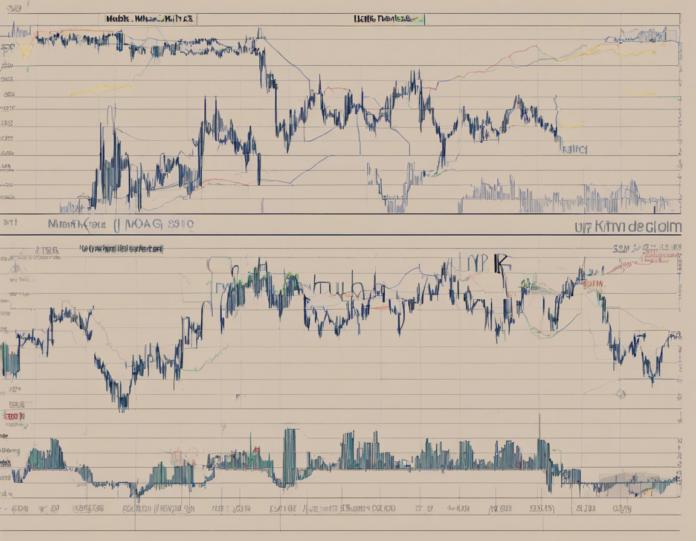Investing in the stock market can be a rewarding yet challenging endeavor. With the volatility of the market and various external factors influencing stock prices, it is crucial for investors to conduct a thorough share price analysis before making any investment decisions.
Today, we will delve into the Mukka share price and analyze its potential for investors. Mukka, a fictional company representing a real-world stock, has been generating buzz in the market due to its innovative products and strong financial performance. By looking at various technical and fundamental aspects of the company, investors can gain insights into whether Mukka’s share price is poised for growth.
Understanding Mukka: An Overview
Before diving into the share price analysis, let’s first understand Mukka as a company. Mukka is a technology-driven company that operates in the e-commerce sector. It offers a wide range of products and services tailored to meet the needs of modern consumers. With a solid track record of revenue growth and market expansion, Mukka has caught the attention of both retail and institutional investors.
Fundamental Analysis of Mukka Share Price
Fundamental analysis involves evaluating the financial health and performance of a company to determine its intrinsic value. Key metrics used in fundamental analysis include earnings per share (EPS), price-to-earnings (P/E) ratio, debt-to-equity ratio, and return on equity (ROE), among others.
1. Earnings Per Share (EPS)
EPS is a crucial metric that indicates a company’s profitability on a per-share basis. A consistently growing EPS is a positive sign for investors, as it shows that the company is generating more profit for each share outstanding.
2. Price-to-Earnings (P/E) Ratio
The P/E ratio compares a company’s current share price to its EPS, providing insights into the stock’s valuation. A high P/E ratio may indicate that the stock is overvalued, while a low P/E ratio could signal an undervalued opportunity.
3. Debt-to-Equity Ratio
The debt-to-equity ratio reveals the extent to which a company relies on debt to finance its operations. A high debt-to-equity ratio may indicate higher financial risk, while a lower ratio suggests a more conservative financial structure.
4. Return on Equity (ROE)
ROE measures a company’s profitability by assessing how effectively it generates profit from shareholders’ equity. A high ROE is typically viewed positively by investors, as it signifies efficient use of equity capital.
Technical Analysis of Mukka Share Price
Technical analysis involves studying historical price data and trading volume to forecast future price movements. Popular tools used in technical analysis include moving averages, relative strength index (RSI), and price chart patterns.
1. Moving Averages
Moving averages help smoothen out price fluctuations and identify trends. The 50-day and 200-day moving averages are commonly used to gauge short-term and long-term trends, respectively.
2. Relative Strength Index (RSI)
RSI is a momentum oscillator that measures the speed and change of price movements. An RSI above 70 may indicate overbought conditions, while an RSI below 30 could signal oversold conditions.
3. Price Chart Patterns
Chart patterns such as head and shoulders, double tops/bottoms, and cup and handle can provide insights into potential price reversals or continuations.
Risks and Considerations
Before investing in Mukka or any other stock, it is essential to consider the risks involved. Factors such as market volatility, industry competition, regulatory changes, and macroeconomic conditions can all impact the share price of a company.
Frequently Asked Questions (FAQs) about Mukka Share Price Analysis
-
Is Mukka a real company, and can I invest in it?
Mukka is a fictional company created for the purpose of this analysis. However, investors can apply similar methodologies to analyze real-world stocks. -
How often should I conduct a share price analysis for a company like Mukka?
It is recommended to regularly review the financial and market performance of a company to stay informed about any significant developments. -
What are some sources of information for conducting share price analysis?
Information can be sourced from financial statements, annual reports, stock market websites, news outlets, and investment research reports. -
How important is it to diversify my investment portfolio when considering Mukka’s share price?
Diversification is crucial to minimize risk exposure and enhance overall portfolio performance. Investing solely in one stock like Mukka may increase risk. -
What role does market sentiment play in influencing Mukka’s share price?
Market sentiment, driven by factors like news events, earnings reports, and economic indicators, can significantly impact investor perception and, ultimately, share prices. -
Should I solely rely on either fundamental or technical analysis for Mukka’s share price assessment?
A balanced approach that incorporates both fundamental and technical analysis can provide a more comprehensive view of a company’s potential for growth.
Investing in the stock market requires a blend of research, analysis, and risk management. By exploring both fundamental and technical aspects of Mukka’s share price, investors can make informed decisions aligned with their investment goals. Remember always to conduct thorough due diligence and seek advice from financial professionals before making any investment decisions.




